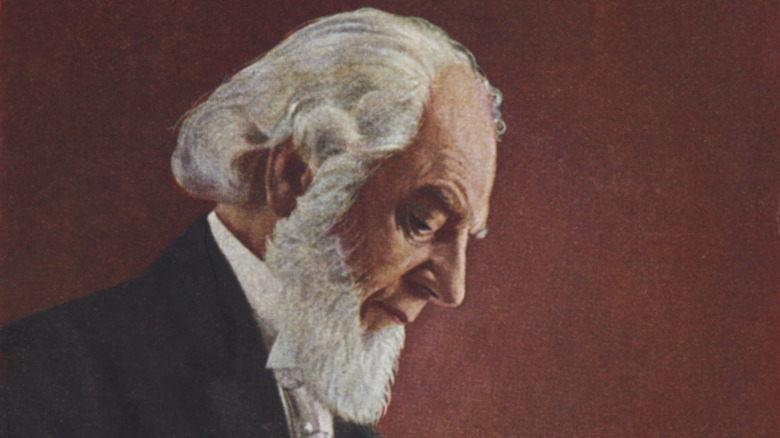The Truth About Jehovah's Witnesses
Christianity has been around for 2,000 years, and in that time, the religion has split into some 45,000 different denominations, according to Live Science. All of these denominations are built around different organizational structures, different interpretations of scripture, and similar points of division. In the main, most Christians belong to groups that agree with each other on certain key points; Baptists and Catholics may have different views on, say, the role of Mary (the mother of Jesus), or how worship is to be carried out, but both groups fall comfortably within the norm of what is considered mainstream, orthodox Christianity.
A few Christian groups, however, have doctrines and practices that the majority of Christendom rejects. One such group is the Jehova's Witnesses, who — in contrast to the overwhelming majority of Christians — don't believe in the Trinity (per the organization's website). And, like the Amish, they steadfastly avoid entanglements with the legal system, to the point of refusing to vote and serve on juries, as My San Antonio reports. In fact, from time to time, a local news headline will reference a Jehova's Witness family who was brought into court because they refused life-saving medical treatment for a sick child, such as in this case reported by NPR News.
The origins of the Jehova's Witnesses
According to The Conversation, the origins of the Jehova's Witnesses movement began in the 1870s in Pittsburgh, when a group of students, led by Charles Taze Russell (pictured above), began studying the Bible. In those early days, the group landed on a key piece of doctrine that persists to this day: that the God of the Bible, referred to simply as "God" (or the local equivalent) by almost all other Christians, must be referred to by his actual Biblical name, Jehovah (a transliteration of a Hebrew word that roughly equates to "Yahweh"). Similarly, the group imagined that Jesus Christ would be returning soon — as in, within decades — and that similar Biblical end-times prophecies were about to start playing out beginning in 1914.
Of course, 1914 came and went without Jesus Christ returning. In the ensuing decades, the group abandoned assigning specific dates to Christ's return but still believes that the day will come when he returns and invokes a thousand-year period of peace on Earth.
Jehova's Witnesses doctrine and practice
These days, the Jehova's Witnesses are known for a handful of things not related to their doctrine but rather their practices. For example, until recently, the group was known for going door-to-door trying to strike up conversations, distribute reading material, and win converts — something that has ground to a halt (and may be over for good) due to the COVID-19 pandemic (as the San Jose Mercury News reports). Further, the group is known for its steadfast refusal to be involved in civic entanglements. Believing that only God can pass judgment, members of the group do not serve on juries, don't vote, don't try to inform public policy, and avoid using the legal system at all costs, as the San Diego Tribune reports.
One way in which the group has found itself at odds with the American legal system more than once has to do with its doctrine prohibiting blood transfusions. As the National Library of Medicine notes, the group believes that receiving blood is contrary to God's law, and as such, more than one Jehova's Witness family has wound up in court due to their steadfast refusal to allow their children to receive a lifesaving medical intervention.


